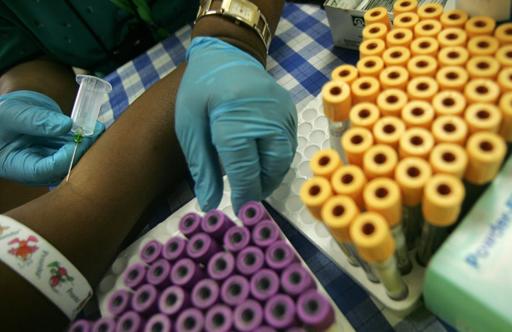People who regularly face a "substantial" risk of HIV infection should take preventative anti-retroviral (ARV) treatment, the World Health Organization said in new guidelines released Wednesday.
Prophylactic, or precautionary, treatment should become "an additional prevention choice" available to high-risk individuals, along with counselling, access to condoms and safe injection material, WHO said.
Those defined as facing regular substantial risk include "some groups of men who have sex with men, transgender women in many settings and heterosexual men and women who have sexual partners with undiagnosed or untreated HIV infection," the organization said in a statement.
Some commercial sex workers also face elevated risk of HIV infection.
Along with its first-ever endorsement of broad, prophylactic ARV use, the WHO said people who test positive should begin treatment immediately, a departure from past guidelines that called for delaying treatment in certain cases.
"WHO removes all limitations on eligibility for anti-retroviral therapy (ART)," the statement said, adding that the revised guidelines were a product of recent findings from clinical trials.
With these new recommendations, "the number of people eligible for anti-retroviral treatment increases from 28 million to all 37 million people who currently live with HIV globally," the statement said.
According to provisional estimates from UNAIDS, this significant expansion of anti-retroviral therapy, if properly implemented, could help prevent 21 million AIDS-related deaths and 28 million new infections by 2030.
“Everybody living with HIV has the right to life-saving treatment," UNAIDS chief Michel Sidibe said in the statement.
"The new guidelines are a very important step towards ensuring that all people living with HIV have immediate access to anti-retroviral treatment," he added.






















































